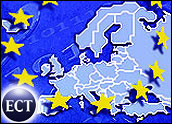
Just two years ago this summer, there was international alarm that youths, some as young as 11 years old, were signing up, en masse, for online gaming accounts. However, that seedy scenario no longer prevails as the online gambling industry has embraced “effective measures” to promote “responsible gaming.”
Sources indicate that more than 100 leading Internet casinos — and online poker rooms — have implemented the new standards, and received a boost to their efforts in late May when online standards and player protection body eCommerce and Online Gaming, Regulation and Assurance (eCOGRA) held its second global training session in London.
“Because online gaming is so popular, attracting many millions of players worldwide, responsible operators know that keeping their site and their players safe is critical to their long term business goals and the overall good of the industry,” said Andrew Beveridge, chief executive officer of eCOGRA. “Our ‘Play It Safe’ operators, have now included specific responsible gaming measures, aids and advice on their sites and appointed staff to look after this critically important operational requirement.”
Playing It Safe
These days, online casino and poker room executives are committed to resolving the problems of underage gambling — and problem gambling. Managers responsible for handling these issues around the world recently completed two days of training by the international Global Gambling Guidance Group (G4), following up on the similar session that was held for eCOGRA sealed sites.
Through lectures, homework and practical workshop sessions, attendees learned how to quickly identify problem gamblers using Brief Intervention Techniques (BIT) such as the “Balinth method,” a psychological technique.
Online casino managers also engaged in role-play exercises to learn exactly how to intervene and stop these situations from arising. The managers also learned case history materials, and, even more importantly, discovered how to develop front-line strategies using BIT through telephone and e-mail consultations with online players.
Critical Importance
The impact of problem gambling on players’ families was also examined in detail, according to Beveridge, who views responsible gambling best practices as a “critically important requirement” for the industry from both a business perspective, and from a holistic perspective.
A few years ago, a charity in the UK, called NCH, conducted a study that showed that only seven out of 37 gambling sites tested stopped a 16-year-old from registering her details online. The youth from London was able to lie, quite successfully, about her age and register her details on Web sites under test conditions using her Solo card, prompting then Minister for Gambling, Andrew McIntosh, to call the findings “worrying.”
Things are quite different — just 24 months later — for online gaming operations.
“Because our software supplier members and seal casinos handle the majority of the industry’s revenue and player activity, we feel it is our obligation to ensure that responsible gaming is a top priority,” said Beveridge. “Allowing underage or problem gamblers to play is morally wrong, and could have industry-wide commercial and legal consequences.”
Beveridge said that third party audit teams pay particular attention to compliance by eCOGRA certified casinos and poker rooms and “there are very few, if any online gambling venues that can match the effort and commitment our operators have invested in this area,” he added.
























































Social Media
See all Social Media